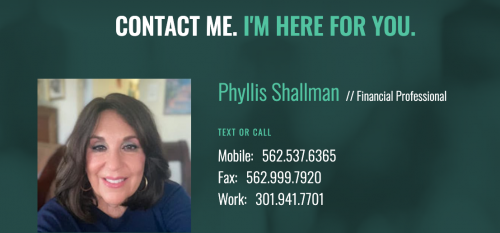
The purpose of this article isn’t to speculate whether or not a recession is on the horizon. It’s to make sure you’re ready if it is.
Some downturns can be seen from a mile away. Others, like the Great Recession and the Coronavirus lockdowns, are black swan events—they catch even the experts off guard.
But they don’t have to find YOU unprepared.
Here’s a quick checklist to help you assess your recession readiness.
Your emergency fund is fully stocked.
Without well-stocked emergency savings, losing your job could spell disaster for your finances—you’d be forced to rely on credit to cover even basic expenses. When you re-enter the workforce, a huge chunk of your income would go straight towards paying down debt instead of building wealth.
That’s why it’s critical to save three to six months of income asap. It may be the cushion you need to soften the blow of unemployment, should it come your way.
You’ve diversified your income.
Recessions don’t discriminate. They affect everyone from the poorest to the wealthiest. But one group weathers downturns better than most—those with multiple streams of income.
If you have more than one source of income, you’re less likely to feel the full brunt of a recession. If one stream dries up, ideally you would have others to fall back on.
What does that look like? For many, it means a side hustle. Some create products like books, online guides, etc., or they might do something like acquire rental properties. These types of businesses typically only require a one-time effort to produce or purchase but will yield recurring income.
If you’re ambitious, you could create a business to generate income that far exceeds your personal labor. It’s not for the faint of heart. But with the right strategy and mentorship, it could lend your finances an extra layer of protection.
You’ve diversified your savings.
Just as you diversify your income streams, you should also diversify your savings. That way, if one account loses value, you have others to fall back on.
What could that look like? That depends on your situation. It’s why talking to a licensed and qualified financial professional is a must—they can help tailor your strategy to meet your specific goals.
You’re positioned to make bold moves.
The wealthy have long known that recessions can be opportunities. With the right strategy, you may actually come out ahead financially.
But in order to take advantage of those opportunities, you need to have cash on hand. That way, when others are forced to sell at a discount, you can scoop up assets at a fraction of their true value.
So if you want to be in a position to take advantage of a downturn, make sure you have ample cash on hand. That way, when an opportunity comes knocking, you’ll be ready to answer.
No one can predict the future. But by following these tips, you can prepare your finances for whatever the economy throws your way.
